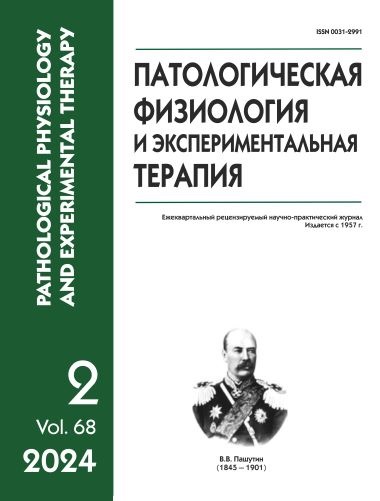The human gut microbiome: scientific paradigm shifts and clinical practice today and tomorrow
DOI:
https://doi.org/10.25557/0031-2991.2024.02.76-86Keywords:
intestinal microbiome, core microbiome, enterotypes of microbiomes, directed microbiome restoration, fecal transplantation, synbioticsAbstract
The study of the human microbiome, which began 15 years ago and is actively ongoing at the present time, has largely resulted in reconsideration of our views on the underlying mechanisms of interaction between the human body and the microorganisms inhabiting it. The picture that emerged has turned out to be much more complex than expected, especially for the gut microbiome. At present, the scientific concepts of what constitutes the gut microbiome are actively developing. They are based, of course, on a reductionist approach. Thus, the theory of «a core microbiome» and the associated concept of «a healthy microbiome» have been proposed. An even more simplified approach to solving the problem of diversity and variability of intestinal microbiomes is the theory of «enterotypes.» It presupposes the existence of preferred (stable) variants of microbiomes structurally organized around certain groups of microorganisms. If anaerobic gram-negative rods are structure-forming, then such microbiomes are characterized by low species diversity, dominance of a small group of microorganisms, and low stress resistance. These types of microbiomes are found in patients with various pathologies, including extraintestinally localized. Therefore, it is assumed that stratification of microbiomes based on enterotypes is convenient from the practical point of view. At present, the scientific concept of microbiomes has little input into medical practice. However, the already existing experience of using pre- and symbiotics, bacteriophages and fecal transplantation indicates the real possibility of changing microbiomes for the prevention and treatment of various human diseases.Downloads
Published
2024-06-22
Issue
Section
Reviews
How to Cite
[1]
2024. The human gut microbiome: scientific paradigm shifts and clinical practice today and tomorrow. Patologicheskaya Fiziologiya i Eksperimental’naya Terapiya (Pathological physiology and experimental therapy). 68, 2 (Jun. 2024), 76–86. DOI:https://doi.org/10.25557/0031-2991.2024.02.76-86.






